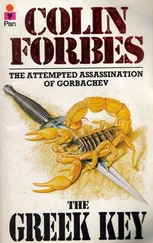Colleen McCullough - 2. The Grass Crown
Здесь есть возможность читать онлайн «Colleen McCullough - 2. The Grass Crown» весь текст электронной книги совершенно бесплатно (целиком полную версию без сокращений). В некоторых случаях можно слушать аудио, скачать через торрент в формате fb2 и присутствует краткое содержание. Жанр: Современная проза. Описание произведения, (предисловие) а так же отзывы посетителей доступны на портале библиотеки ЛибКат.
- Название:2. The Grass Crown
- Автор:
- Жанр:
- Год:неизвестен
- ISBN:нет данных
- Рейтинг книги:5 / 5. Голосов: 1
-
Избранное:Добавить в избранное
- Отзывы:
-
Ваша оценка:
- 100
- 1
- 2
- 3
- 4
- 5
2. The Grass Crown: краткое содержание, описание и аннотация
Предлагаем к чтению аннотацию, описание, краткое содержание или предисловие (зависит от того, что написал сам автор книги «2. The Grass Crown»). Если вы не нашли необходимую информацию о книге — напишите в комментариях, мы постараемся отыскать её.
2. The Grass Crown — читать онлайн бесплатно полную книгу (весь текст) целиком
Ниже представлен текст книги, разбитый по страницам. Система сохранения места последней прочитанной страницы, позволяет с удобством читать онлайн бесплатно книгу «2. The Grass Crown», без необходимости каждый раз заново искать на чём Вы остановились. Поставьте закладку, и сможете в любой момент перейти на страницу, на которой закончили чтение.
Интервал:
Закладка:
Gnaeus Octavius and his custodial consular colleague Merula flamen Dialis saw October slip into the past without any change in the dispositions of the armies, and despaired. Whenever they managed to gain an audience with Pompey Strabo, he had some reason why he couldn't fight; Octavius and Merula were eventually forced to come to the conclusion that the real reason was that he preferred to outnumber his opponent in a battle situation, whereas in fact Cinna outnumbered him. When the city learned that Marius owned Ostia and there would be no grain barges coming up the river with the new harvest, gloom rather than a fresh panic ensued. The consuls saw into a terrible future, and wondered how long they could last if Pompey Strabo continued to refuse to engage the enemy. Finally Octavius and Merula decided to recruit among the Italians, and had the Senate recommend to the Centuries that those Italians who supported the "true" government of Rome be awarded full citizen status across the tribes. Once the law was passed, heralds were sent out to proclaim it throughout Italy, and call for soldier volunteers. Hardly any came, chiefly because Cinna's tribunes of the plebs had beaten the "true" government of Rome to all the available men more than two months before. Then Pompey Strabo hinted that if Metellus Pius brought his two legions from Aesernia, together they would defeat Cinna and Marius. So Octavius and Merula sent a deputation to see the Piglet before Aesernia, beg him to conclude a peace treaty with the beleaguered Samnites and come to Rome as quickly as he could. Torn between his duty to reduce Aesernia and the critical situation within Rome, the Piglet rode out to treat with a paralyzed Gaius Papius Mutilus, who was of course completely aware of what was going on around Rome. "I am willing to conclude a peace with you, Quintus Caecilius," said Mutilus from his litter, "on the following terms: give back to the Samnites all you have taken from them return the Samnite deserters and prisoners of war in your custody to us unharmed renounce all claim to the booty the Samnites have taken off you and bestow the full citizenship of Rome upon every free man in the nation of Samnium." Metellus Pius reared back, outraged. "Yes, certainly!" he said sarcastically. "Why not just require us to pass under the yoke, Gaius Papius, as the Samnites did after the battle of the Caudine Forks two hundred years ago?" he asked. "Your terms are absolutely impossible! Good day to you." Head up and spine straight, he rode back to his camp and icily informed the delegation from Octavius and Merula that there would be no peace treaty, and that in consequence he would not be able to go to Rome's assistance. The Samnite Mutilus returned in his litter to Aesernia feeling a great deal happier than the Piglet; he had been visited by a brilliant idea. After nightfall his courier sneaked through the Roman lines bearing a letter from Mutilus to Gaius Marius asking Marius if he was interested in concluding a peace treaty with Samnium. Though he was well aware that Cinna was the rebel consul and Marius only a rebel privatus, it never even occurred to Mutilus to send his letter to Cinna. In any enterprise involving Gaius Marius, he would be the leader, the man with the clout. With Marius, now approaching Rome, was the tribune of the soldiers Gaius Flavius Fimbria; he had been with the legion at Nola, and like his colleagues Publius Annius and Gaius Marcius Censorinus, elected to follow Cinna. But the moment Fimbria heard of the advent of Marius in Etruria, he transferred immediately to Marius, who was delighted to see him. "No point in making you a tribune of the soldiers here," Marius said. "My army has few Roman legionaries, it's mostly servile. So I'll give you the command of my Numidian cavalry brought them from Africa with me." When Marius received Mutilus's letter, he sent for Fimbria. "Go and see Mutilus in the Melfa Gorge, which is where he says he'll be." Marius snorted contemptuously. "No doubt he wants to remind us how many times we were beaten in that selfsame spot. However, for the time being we'll ignore his impudence. Meet him, Gaius Flavius, and agree to whatever he asks, be it rule over all Italy or a trip to the land of the Hyperboreans. We'll cut Mutilus and the Samnites down to size later." While this was going on, a second delegation from Rome arrived to see Metellus Pius before Aesernia. It comprised much stronger men; Catulus Caesar and his son Catulus, and Publius Crassus the censor and his son Lucius. "I beg you, Quintus Caecilius," said Catulus Caesar to the Piglet and his legate, Mamercus, "leave as small a force as you can to contain Aesernia, and come to Rome yourself! Otherwise you will have no purpose besieging Aesernia anyway. Rome and all Rome stands for will be finished." So Metellus Pius agreed. He left Marcus Plautius Silvanus behind with a paltry five cohorts of suddenly very frightened men to contain the Samnites, but no sooner had the other fifteen cohorts disappeared in the direction of Rome than the Samnites issued out of Aesernia. They trounced Silvanus's skeleton force, and then overran all of Roman-held Samnium. Those Samnites who had not gone to Rome with Cinna now overran all southwestern Campania almost as far as Capua; the little town of Abella was sacked and burned, after which a second Samnite army went off to join the insurgents. These Italians gave Cinna no thought whatsoever they went directly to Gaius Marius and offered him their services. With Metellus Pius were Mamercus and Appius Claudius Pulcher. The fifteen cohorts they brought from Aesernia were put into the Janiculan garrison; Appius Claudius was appointed garrison commander. Unfortunately Octavius insisted upon retaining the title of chief garrison commander for himself, which Appius Claudius took as a monumental insult. Why should he do all the work and get none of the glory? Smoldering, Appius Claudius contemplated changing sides. Word had also been sent by the Senate to Publius Servilius Vatia in Italian Gaul, where two legions of trainees had been kept under arms; one lay in Placentia with the legate Gaius Coelius, and one in Aquileia with Vatia, far to the east. These two forces were purely intended to intimidate the Italian Gauls, as Vatia feared the accumulating resentment of Rome's unpaid war debts, particularly in the steel towns near Aquileia. When he got the Senate's letter Vatia notified Coelius to march his legion from Placentia to the east, and himself set off for Rome with his own legion the moment Coelius assured him it was safe to do so. Unfortunately for the "true" government of Rome, when Vatia reached Ariminum he encountered the outlawed tribune of the plebs Marcus Marius Gratidianus, who had been sent north on the Via Flaminia with every spare cohort Cinna could provide, just in case the governor of Italian Gaul should try to send reinforcements. After his unblooded recruits gave a very poor account of themselves, Vatia crossed back into his own province and abandoned all ideas of trying to relieve Rome. Hearing a garbled version of what had happened at Ariminum, Gaius Coelius, a very depressed man, decided all was lost for the "true" government of Rome, and killed himself. Octavius, Merula, and the rest of the "true" government of Rome watched their position worsen almost hour by hour. Gaius Marius came prancing up the Via Campana and set his troops down just to the south of the Janiculan garrison, whereupon the resentful Appius Claudius secretly collaborated with Marius and allowed him to penetrate the Janiculan fortress's outer stockade and defenses. That the citadel did not fall was thanks to Pompey Strabo, who deflected Cinna's attention from Marius by marching over the Pincian hill and engaging Sertorius. At the same time Octavius and the censor Publius Crassus led a fresh force of volunteers across the Wooden Bridge and relieved the citadel just in time to prevent its being overwhelmed. Hampered by the lack of discipline among his slave soldiers, Marius was forced to withdraw; the tribune of the plebs Gaius Milonius was killed trying to help him. Publius Crassus and his son Lucius were put permanently inside the Janiculan citadel to keep an eye on Appius Claudius, who had changed his mind again and now felt the "true" government would win. And Pompey Strabo, informed the fortress was safe, disengaged his legions from those belonging to Sertorius and marched back to his camp on the Colline Gate side of the Pincian hill.
Читать дальшеИнтервал:
Закладка:
Похожие книги на «2. The Grass Crown»
Представляем Вашему вниманию похожие книги на «2. The Grass Crown» списком для выбора. Мы отобрали схожую по названию и смыслу литературу в надежде предоставить читателям больше вариантов отыскать новые, интересные, ещё непрочитанные произведения.
Обсуждение, отзывы о книге «2. The Grass Crown» и просто собственные мнения читателей. Оставьте ваши комментарии, напишите, что Вы думаете о произведении, его смысле или главных героях. Укажите что конкретно понравилось, а что нет, и почему Вы так считаете.












